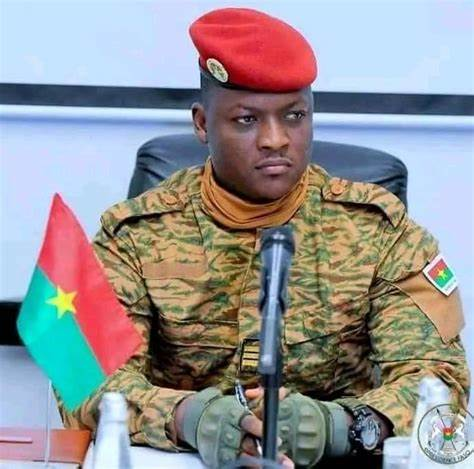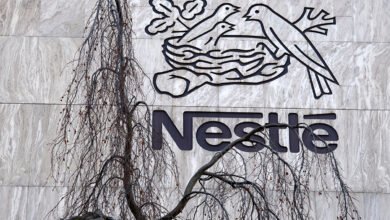
Military Coups in West Africa: A New Era or a Step Backward for French Influence?
West Africa has experienced eight military coups since 2020, marking one of its most unstable periods in recent history. These takeovers have altered the map of regional politics. Military leaders in former French colonies now actively resist Paris’s traditional influence.
French forces pulled out of several Sahel countries in 2023. This withdrawal shows a deep change in France’s relationship with its former African territories. Russia and China have stepped in to expand their regional presence. The evolving situation raises significant questions about West Africa’s political future, regional stability, and the emerging balance of power in what was historically France’s sphere of influence.
The Rise of Military Takeovers in West Africa
Military interventions have transformed West Africa’s political scene since 2020. These coups happen more frequently now, especially when you have Francophone countries. Africa has seen 106 out of 242 successful military coups worldwide since 1950. This trend moves faster now.
Timeline of recent coups in Francophone countries
Military takeovers in Francophone West Africa have moved at a swift pace:
| Country | Date | Key Event |
|---|---|---|
| Mali | August 2020 & May 2021 | Double coup leading to Colonel Assimi Goita’s presidency |
| Guinea | September 2021 | Special forces removed President Alpha Condé |
| Burkina Faso | January & September 2022 | Two successive coups |
| Niger | July 2023 | Presidential guard detained President Bazoum |
| Gabon | August 2023 | Military officers overthrew President Ali Bongo |
Common triggers and justifications
Several complex factors drive these military interventions:
- Weak institutional frameworks and endemic corruption
- Rising security challenges, especially from jihadist insurgencies
- Economic hardships and public dissatisfaction with civilian leadership
- Constitutional manipulation by incumbent leaders
Popular support and public reactions
Recent military takeovers have got surprising support from civilians. Afrobarometer polls show that public preference for democracy dropped from 73% to 68% over the last several years. Niger’s M62 movement, which brings together civil society organizations, showed strong support for the military takeover. People celebrated in Guinea’s streets of Conakry after President Alpha Condé’s removal.
This public support stems from frustration with civilian leadership rather than real enthusiasm for military rule. The data reveals that all but one of these citizens in coup-affected countries want democratic governance. This suggests people reject failed civilian leadership more than they support military control.
France’s Declining Regional Influence
French dominance in West Africa faces new challenges that have transformed its regional influence. The country managed to keep exceptional control over its former colonies through military presence, economic ties, and diplomatic relations since the post-colonial era of the 1960s.
Historical military presence and interventions
The French military launched over 30 direct military interventions in Africa between 1964 and 1995, establishing itself as the main security provider in the region. Operation Barkhane became the country’s largest modern military deployment in 2014, with 4,000 troops stationed in five Sahelian countries. This strategic presence helped France secure its position in UN Security Council discussions and extend its power throughout the continent.
Withdrawal of French forces from key allies
French military presence has seen dramatic changes:
- August 2022: Complete withdrawal from Mali
- December 2022: Exit from Central African Republic
- February 2023: Departure from Burkina Faso
- December 2023: Final withdrawal from Niger
The French military plans to scale down its presence to about 600 troops in West and Central Africa, a sharp decrease from 5,500 troops just two years ago.
Economic and diplomatic setbacks
France’s declining influence extends to economic spheres:
| Metric | Past Position | Current Status |
|---|---|---|
| African Market Share | Leading supplier | 5.5% (behind China’s 17%) |
| Regional Trade | Dominant partner | Less than 1% market share in West Africa |
| Investment Ranking | Top investor | Surpassed by Netherlands and others |
Public sentiment against France has grown stronger in the region. This resistance shows through protests, attacks on French institutions, and suspended French media outlets. The October 2022 attacks on the French Embassy in Ouagadougou and regular protests in Mali, Burkina Faso, and Niger illustrate the public’s growing rejection of French presence.
The Role of External Powers
France’s retreat from West Africa has created a power vacuum that draws new external players to the region. The geopolitical landscape has undergone a fundamental change. This change allows both 20-year-old and emerging powers to grow their influence in the Sahel region.
Russia’s growing military partnerships
Moscow has expanded its military presence faster through strategic collaborations and Wagner Group deployment. Recent developments include:
- Deployment of telecommunications and remote-sensing satellites over Mali, Niger, and Burkina Faso
- Provision of military instructors, helicopters, and weapons to regional forces
- Security alliances through the A.E.S. framework
China’s economic influence
Beijing stands as Africa’s dominant economic partner that reshapes regional development through strategic investments and trade relationships:
| Economic Indicator | Value (2023) |
|---|---|
| Total Trade Volume | AED 1035.54 billion |
| African Exports to China | 20% of total exports |
| Chinese Imports to Africa | 16% of total imports |
China’s Belt and Road Initiative provides the main framework for infrastructure development in transportation, energy, and mining sectors. Chinese private enterprises make up 70% of the roughly 3,000 Chinese businesses that operate in Africa.
Regional bloc responses and interventions
ECOWAS aims to maintain regional stability through various mechanisms:
- Implementation of the Protocol on Democracy and Good Governance
- Development of conflict prevention and management frameworks
- Suspension and sanctioning of member states after unconstitutional changes
The organization doesn’t deal very well with constitutional violations and military takeovers. New security alliances, like A.E.S. between Mali, Niger, and Burkina Faso, make regional diplomatic efforts more complex. These changes highlight the limitations of traditional Western-backed security arrangements.
Impact on Regional Stability and Security
Political upheaval in West Africa has triggered a chain reaction that poses new challenges to regional stability and security. These interconnected problems have altered the map of the region. The effects touch both military-ruled states and their democratic neighbors.
Cross-border security challenges
West Africa’s porous borders have become easy targets for criminals and security threats. The Sahel region stands as the global epicenter of terrorism and accounts for nearly half of all terrorism-related deaths worldwide. Criminal networks work across borders with increasing sophistication. They take advantage of weak border controls and gaps in institutional oversight. Roadblocks, arms trafficking, and militant activities have created a complex security environment that goes beyond national borders.
Economic consequences of political instability
The region’s political instability has dealt severe economic damage:
| Country | Economic Impact |
|---|---|
| Ghana | 1% GDP reduction |
| Senegal | 5% trade-related GDP loss |
| Benin | 12% increase in military spending |
| Niger-Benin border | 70-80% trade volume affected |
Closed trade routes and disrupted economic corridors hit landlocked countries hardest. These countries now face higher import costs and less foreign investment. The economic damage reaches beyond immediate trade problems and affects long-term development and regional cooperation.
Humanitarian concerns and displacement
The humanitarian crisis has reached new heights. Displacement numbers show the extent of human suffering:
- Over 3.2 million internally displaced persons in the Sahel region
- Approximately 1.5 million refugees and asylum seekers
- More than 110,000 people have fled to coastal states
- 13.3 million Sudanese displaced by ongoing conflict
Coastal states struggle to support growing refugee populations while maintaining their social services and security. Host communities feel intense pressure. Northern regions of coastal states face particular challenges. These areas already lag behind southern zones in development, which makes existing regional inequalities worse.
Recent military coups in West Africa reshape the regional power balance and weaken France’s traditional control over its former colonies. These political upheavals and France’s military pullback create space for Russia and China. Both countries now build stronger positions through military partnerships and economic investments in the region.
The decline of French power means more than just fewer troops on the ground. This change shows how West Africa rebuilds its international relationships. Russia expands its military cooperation while China strengthens its economic ties. Their quick rise proves how fast new powers can step into a strategic void.
The region faces mounting security threats as humanitarian crises worsen. Millions of displaced people and economic turmoil create major problems for military-ruled states and their democratic neighbors. West Africa now stands at a turning point. Today’s choices will influence regional stability and international relations for generations.







[…] Advanced missiles deployed in the Ukraine conflict show a most important change in modern warfare capabilities. Military analysts say these new missiles are the most sophisticated weapons systems used in the conflict. This raises concerns about how the war might change course. […]